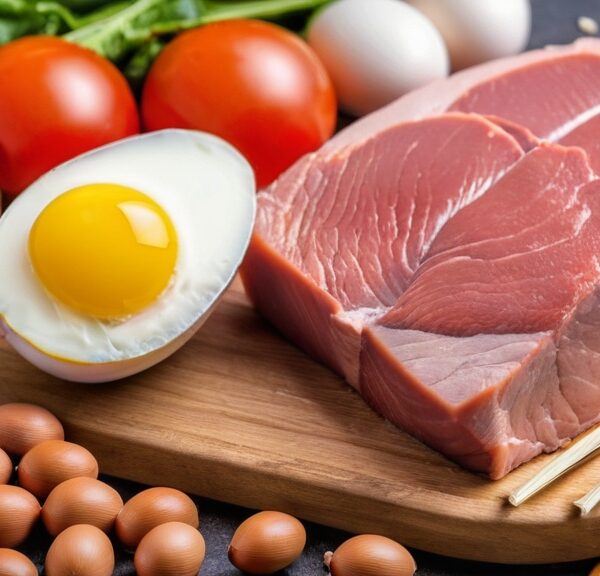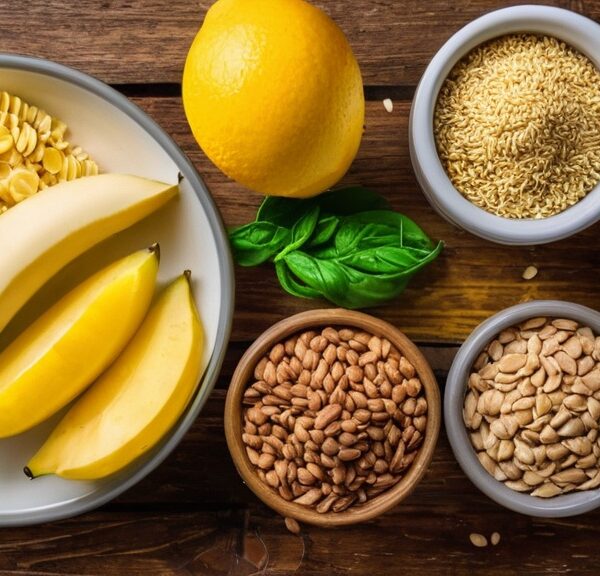Healthy fats play a crucial role in the diets of strength athletes. They provide essential energy and support overall health. Unlike unhealthy fats, healthy fats contribute to muscle recovery and growth.
Incorporating healthy fats into a strength athlete’s diet can enhance performance. These fats help in nutrient absorption and hormone production. Athletes need to understand the significance of these fats for optimal training results.
Key Takeaways
- Healthy fats are crucial for strength athletes as they support hormone balance and testosterone production.
- Omega-3 fatty acids play a key role in a strength athlete’s diet, supporting hormone health and overall performance.
- Monounsaturated fats are beneficial for hormone balance and should be included in a strength athlete’s diet.
- Polyunsaturated fats are important for supporting hormonal health in strength athletes and should be incorporated into their diet.
- Saturated fats also play a role in hormone regulation for strength training and should be included in moderation in a strength athlete’s diet.
Understanding Hormone Support and its Role in Strength Training
Hormones significantly influence strength training outcomes. They regulate muscle growth, recovery, and overall performance. Strength athletes must prioritize hormone support to maximize their training efforts.
Proper hormone balance can lead to improved strength gains. It also aids in faster recovery from intense workouts. Understanding how to support hormones through diet is essential for athletes.
Omega-3 Fatty Acids: A Key Component of a Strength Athlete’s Diet

Omega-3 fatty acids are vital for strength athletes. They reduce inflammation and promote joint health. This is especially important for athletes who engage in heavy lifting.
Including omega-3s in the diet can enhance recovery times. They also support cardiovascular health, which is crucial for endurance during workouts. Strength athletes should consider sources like fish, flaxseeds, and walnuts.
The Benefits of Monounsaturated Fats for Hormone Balance
Monounsaturated fats offer numerous benefits for hormone balance. They help regulate insulin levels and improve cholesterol profiles. This can lead to better overall health and performance.
Foods rich in monounsaturated fats include avocados and olive oil. These fats can enhance nutrient absorption and support muscle recovery. Incorporating them into meals can significantly benefit strength athletes.
Polyunsaturated Fats: Supporting Hormonal Health for Strength Athletes
Polyunsaturated fats also play a role in hormonal health. They include omega-3 and omega-6 fatty acids, both essential for the body. These fats help maintain cell membrane integrity and support hormone production.
Strength athletes should focus on balancing their intake of these fats. Sources like fatty fish, nuts, and seeds provide necessary nutrients. Proper consumption can lead to improved performance and recovery.
Saturated Fats and Hormone Regulation in Strength Training

Saturated fats often receive mixed reviews in nutrition discussions. However, they can play a role in hormone regulation for strength athletes. Consuming moderate amounts can support testosterone production.
Sources of saturated fats include coconut oil and grass-fed meats. These can provide energy and support muscle growth when consumed wisely. Balance is key to ensuring they contribute positively to an athlete’s diet.
The Role of Healthy Fats in Testosterone Production for Strength Athletes
Healthy fats are essential for testosterone production in strength athletes. Testosterone plays a significant role in muscle growth and recovery. Adequate fat intake supports optimal hormone levels.
Athletes should focus on incorporating healthy fat sources into their meals. This can include avocados, nuts, and olive oil. Doing so can help maintain healthy testosterone levels and improve performance.
Hormone-Supportive Fats: Incorporating Avocado, Nuts, and Seeds into a Strength Athlete’s Diet
Avocado, nuts, and seeds are excellent sources of hormone-supportive fats. They provide essential nutrients that promote overall health. Including these foods in daily meals can enhance performance.
Strength athletes can enjoy avocados in salads or smoothies. Nuts make great snacks or toppings for various dishes. Seeds can be added to yogurt or oatmeal for an extra nutrient boost.
Cooking Oils and Their Impact on Hormone Balance for Strength Athletes
The choice of cooking oils can impact hormone balance significantly. Healthy oils like olive oil and coconut oil provide beneficial fats. These oils support overall health and enhance the flavor of meals.
Avoiding unhealthy oils is crucial for maintaining hormone levels. Processed oils can lead to inflammation and hormonal imbalances. Choosing the right cooking oils can make a difference in an athlete’s diet.
Balancing Omega-3 and Omega-6 Fatty Acids for Optimal Hormone Support
Balancing omega-3 and omega-6 fatty acids is vital for hormone support. Omega-3s reduce inflammation, while omega-6s play a role in various bodily functions. Achieving the right balance can enhance overall health.
Strength athletes should aim to increase omega-3 intake while moderating omega-6 consumption. This can lead to improved recovery times and better performance outcomes. Foods like fatty fish and flaxseeds are excellent sources of omega-3s.
Meal Planning Tips for Incorporating Healthy Fats and Hormone Support into a Strength Athlete’s Diet
Meal planning is essential for strength athletes looking to incorporate healthy fats. Start by including a variety of fat sources in each meal. This ensures a balanced intake of nutrients.
Consider preparing meals with avocados, nuts, and seeds as staples. Use healthy cooking oils to enhance flavor while supporting hormone balance. Planning meals ahead can help maintain consistency in dietary choices.
In conclusion, healthy fats are vital for strength athletes aiming to optimize their performance and recovery. By understanding the role of different types of fats, athletes can make informed dietary choices that support their training goals. Prioritizing healthy fats not only enhances physical performance but also promotes overall well-being, making them an essential component of any strength athlete’s diet.
FAQs
What are healthy fats?
Healthy fats are unsaturated fats that are beneficial for overall health. They can be found in foods such as avocados, nuts, seeds, and fatty fish.
How do healthy fats support hormone balance for strength athletes?
Healthy fats play a crucial role in hormone production and balance. They are essential for the production of hormones such as testosterone, which is important for muscle growth and strength.
What are some examples of healthy fats that support hormone balance?
Examples of healthy fats that support hormone balance include omega-3 fatty acids found in fatty fish like salmon, monounsaturated fats found in avocados and olive oil, and polyunsaturated fats found in nuts and seeds.
How can strength athletes incorporate healthy fats into their diet?
Strength athletes can incorporate healthy fats into their diet by including foods such as avocados, nuts, seeds, and fatty fish in their meals. They can also use healthy oils like olive oil for cooking and salad dressings.
Are there any potential risks associated with consuming healthy fats?
While healthy fats are beneficial for overall health, it’s important to consume them in moderation as they are calorie-dense. Overconsumption of healthy fats can lead to weight gain and other health issues.



